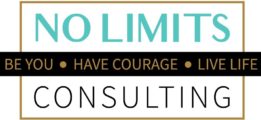Humans make thousands of decisions every day. However, our brains don’t give each decision equal attention — we take mental shortcuts.
To brain scientists, these shortcuts are known as “biases.” They’re neither good nor bad; they just are. They help us in certain cases and hinder us in others. We’ve just witnessed over the past weeks the horrific behaviours of US law enforcement at “subduing” one of their citizens. An African American named George Floyd. As a result of their extreme use of force which resulted in George’s unnecessary death, it has culminated into the uprising of the oppressed minority groups in the US and subsequently around the world.
There are 40 common unconscious biases that have been identified by Psychologists and Scientists to date. Can we ever truly eliminate the biases from our brains? In short the answer is No. Biases are there to protect us from threats, whether they’re real or perceived. Why are they perceived? Well it comes from our beliefs. Where do our beliefs come from? It comes from our upbringing, society, our cultures, religion, our past experiences. Those beliefs ultimately become our “Truths”. Those truths determine how we react and behaviour with individuals around us. Why we feel safe around some and fearful around others.
In an ideal Utopian world we would all love to be able to get along holding hands. In reality life is very complex. But before you burn me at the stake or give up on your notion of a perfect life.
Can we become more consciously aware of those biases those one-sided truths? Yes. Here are 5 most common biases, defined as the SEEDS Model of Bias
1. Similarity – People like me are better than others.
This is the number one bias that has plagued mankind from Day 1. In Scientific terms it’s called “Survival of the Fittest”. The most strongest wins. We’ve seen this throughout history and today. It’s human nature to want to hang around people that are similar to you. You feel on an unconscious level safer.
2. Expedience – If it feels right, it must be true.
We use our emotions to make decisions and judgement about everything in our lives. We have to make snap judgement as it could be a life and death situation. We need those emotions to motivate us into action otherwise we would have been killed back in the cave man times.
3. Experience – My perceptions are accurate.
Have you ever had a bad experience with someone? Then generalised and said “They’re all like that?” Take COVID-19 for example. The disease was founded from China, so there was a lot of people starting to pick on “Chinese” looking individuals in their society because how they purely looked created a “blame” towards the chinese culture. Perhaps you stood a little further apart from a Chinese person while waiting for a bus because of this unconscious bias.
4. Distance – Closer is better than distant.
Involves focusing on the short-term (here and now) thinking rather than long-term. This can be detrimental if you like to throw people under the bus “figuratively speaking” and not thinking about the bigger picture.
5. Safety – Bad is stronger than Good.
It’s human nature to protect ourselves from loss rather than take risks to gain reward. Think about the years someone may spend in a dead end job, they may spend their time complaining about it, then rationalise it away by saying “It pays the bills” “I get to work from home” “No-one micromanages me”. Get the drift?
If you haven’t realised this already, all these biases have been programmed into us as a “protection” mechanism from threats in our environment. Our brains cannot tell the difference between real or perceived. We react biologically in the same way. The best way to combat these biases is to become educated in what they are, when they come up for you in your life and how you can circumnavigate those biases moving forward.
By understanding how you see the world through these biases can really lessen the cultural divide within and between races. It all starts with you. How we treat others is a representation of how our society treats their communities. We can bridge the gap and embrace Diversity with Optimism rather than as an Obstacle.
As featured in Thrive Global
About Paula Dunn – Paula is Australia’s leading Teenage Leadership Strategist and Cognitive Scientist with over 20 years’ experience in Medical
Research and Pharmaceutical Industries, with a strong focus on People Leadership. Having worked in the full circle of
Management, Science and Social Intelligence Paula is the perfect commentator and advisor on mindset, motivation and
momentum in Teens.
Over her 20 years within the Medical and Scientific industries, Paula has worked with leaders for some of the biggest brands in the world such as Eli Lilly, Cochlear and Johnson & Johnson just to name a few. Paula is best known for helping teens create confidence to conquer life, their way! Thus, helping them thrive while making the right decisions for their future success. She has worked with over hundreds of clients within High Schools, Corporate and Academia sectors. Paula is a sort after media commentator on Leadership, Mindset and Bullying. Paula has Bachelor’s Biomedical Sciences (Hons), Masters of Science (Hons), a Master Practitioner in Business Coaching and Executive Leadership, a Diploma and an Advanced Diploma in Life Coaching and is a Cognitive Scientist. She is also an accredited Coach, facilitator and trainer.
Paula has also received various accolades: 2018 Regional Finalist category “Superstar Start Up Awards” NSW Business Chamber; 2019 Inner West Regional Finalist for Local Business Awards and was recently awarded the Prestigious “Women of Excellence” for her Leadership Program for year 10 girls at the Women Economic Forum in India 2019. Paula is a finalist in two categories at the Illawarra Women in Business Awards 2020 – Finalist Business Woman of the Year and Small Business of the Year.

Leave a Reply